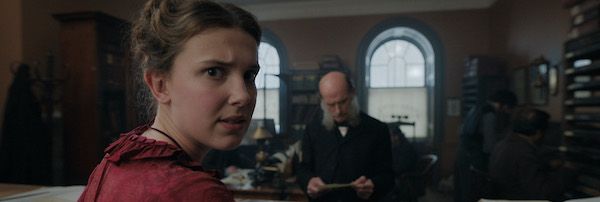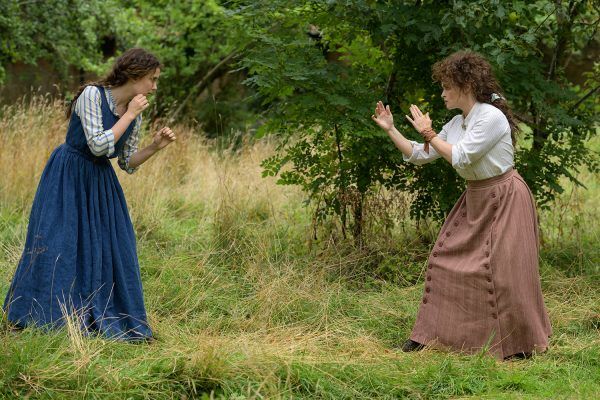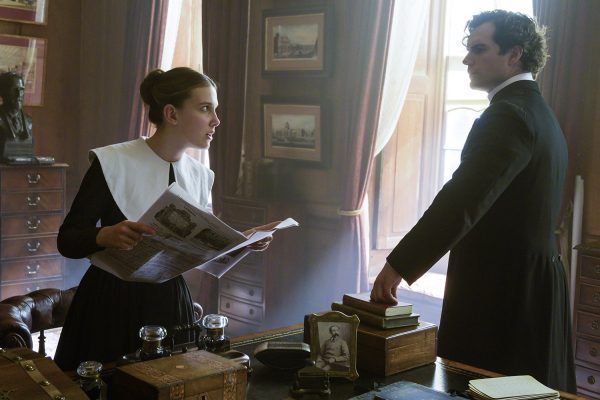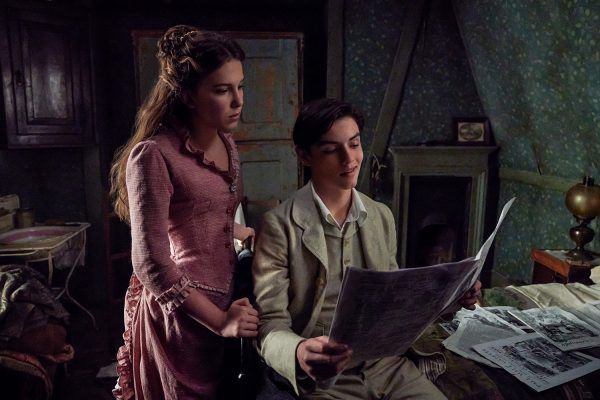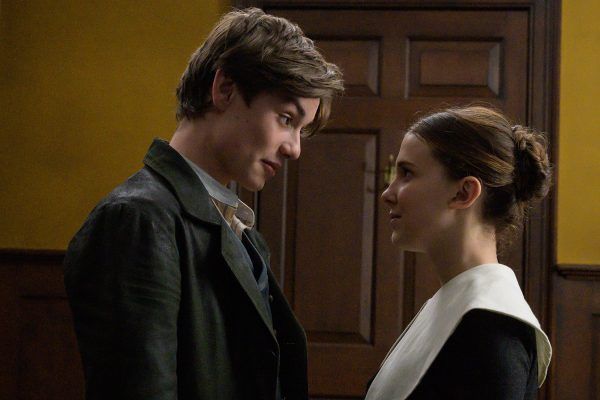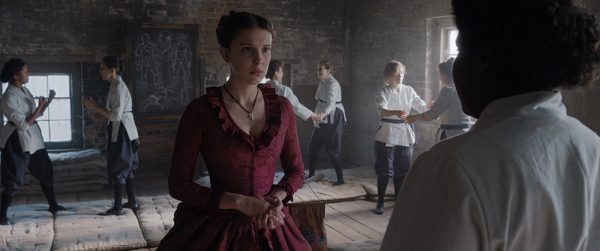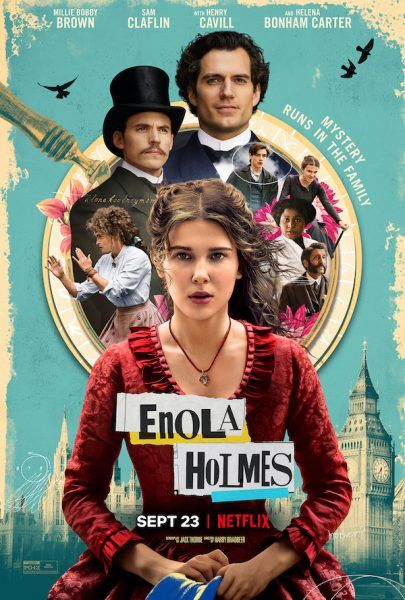[Editor’s note: Spoilers for Enola Holmes follow below.]
The Netflix movie Enola Holmes is a full-blown mystery. That means clues, red herrings, lots of deducing, and a solution by the time the film is over. But one of the strengths of Enola Holmes is that the two main cases that its titular detective (played brilliantly by Millie Bobby Brown) is trying to solve are not only engaging and satisfying from a plot perspective, but also tie in nicely to the film’s themes of progress, sacrifice, and yes, feminism.
So if you’ve seen Enola Holmes and are either a bit confused as to how the clues in the cases add up, or are simply curious about the themes layered throughout the movie, we’ve got you covered. Let’s dig into the Enola Holmes ending.
The Missing Mother
The story of Enola Holmes begins with a case of a missing mother – Enola’s mother, to be exact. You see, while Enola’s brothers Sherlock (Henry Cavill) and Mycroft (Sam Claflin) grew up and moved out of the house, Enola was essentially raised alone by her mother, Eudoria (Helena Bonham Carter), who taught her a variety of trades from puzzle solving to martial arts. The degree to which Enola’s mother cared for her makes her sudden disappearance all the more confusing, but after tracking down a couple of hidden clues, Enola finds that Eudoria left her a few breadcrumbs to follow.
As Enola sneaks away to London, she discovers that her mother has been working with a group of women fighting for political reform in somewhat controversial ways. Indeed, Enola happens upon a warehouse filled with explosives and bombs along with flyers that advise three devices for “maximum disruption”: protest, unrest, and civil disobedience. It appears as though Eudoria and her secret group of women have been working a long time towards finding ways to push through political reform (including expanded rights for women), and as the time for action drew nearer, Eudoria left her home.
In one of the film’s final scenes, Eudoria and Enola finally reunite – after Enola has solved the secondary case in the film, which leads to the passing of the reform bill (more on that in a minute). Eudoria apologizes for leaving Enola suddenly, explaining that it was for Enola’s own safety that she didn’t tell her where she was going – but more importantly, it was precisely Enola’s future for which she was fighting:
“I’m sorry. I wanted to tell you where I was going, but it wasn’t safe. I didn’t leave you because I didn’t love you. I left for you, because I couldn’t bear to have this world be your future. So I had to fight. You have to make some noise if you want to be heard.”
Eudoria is still apparently unsafe – likely on the lam from authorities who want to question her – so she can’t stay long. But she expresses delight and surprise that Enola was the one who was actually able to pass reform. “I thought I was the one that was going to change the world,” she tells her daughter. “What a woman you’ve become.”
The two share a lovely, tearful embrace as Eudoria notes she’ll always be there for her daughter. But for right now, their paths must part. Enola’s narration picks back up in the film’s final moments, as she sums up the independence she’s now gained, and the separate paths each member of her family has now followed:
“To be a Holmes you must find your own path. I now see that being alone doesn’t mean that I have to be lonely. Mother never wanted that. She wanted me to find my freedom, my future, my purpose. I am a detective. I am a decipherer. And I am a finder of lost souls. My life is my own. And the future is up to us.”
The Tewksbury Case
The secondary case in Enola Holmes is that of Viscount Lord Tewskbury (Louis Partridge), whom Enola meets while escaping on a train at the beginning of the film. When they first cross paths, Lord Tewskbury is on the run from his family, but also from an assassin who has tracked him to the train. Enola saves his life and the two spend a friendly evening together as they make their way to London. Lord Tewskbury is revealed to be a sensitive and progressive fella, and while the two part ways once they get to London, their story is not yet done.
As Enola delves deeper into the mystery of her missing mother, she becomes more familiar with the politics at play in London at the time. The Lords are due to vote on reform, which if it passes could pave the way for a more progressive society and one in which women are treated more fairly and afforded more of the rights that are given to men and denied to women.
As it turns out, Tewksbury is due to be inducted into the Lords imminently. When he sneaks into the boarding house to rescue Enola, she puts two and two together and realizes someone is trying to kill him for the way he’ll vote on the upcoming reformation bill. Enola also deduces that Tewksbury’s father – also a progressive – was likely murdered instead of dying in a freak accident, and that story about a tree branch nearly falling and killing Lord Tewskbury? Well, it turns out the tree branch was sawed off – that was the first assassination attempt.
Lord Tewksbury’s family wanted him to join the army and go overseas, so the main suspect in this case is Tewskbury’s uncle whom Enola presumes is behind the assassination attempts. If Lord Tewksbury dies, his uncle would take his place in the Lords and likely vote against the reform bill.
But when Tewksbury and Holmes make their way back to Tewksbury’s estate for one final confrontation with the assassin, they learn it was actually Tewksbury’s grandmother who was behind these assassination attempts. It’s here where it’s important to recall the first conversation Enola had with the grandmother when she was snooping in Tewksbury’s treehouse earlier in the film.
“It always felt an honor to me that my family was given this part of England to protect,” Tewksbury’s grandmother said in that initial interaction. “That is what it is to be an ancestral land owner. As the world becomes increasingly unstable, it feels important that these ideas of England are preserved for the safety and security of the future of our country.” Clearly Tewksbury’s grandmother is extremely conservative and fearful of any kind of reform that might level the playing field and potentially lessen her massive wealth by even the smallest degree.
Tewksbury’s grandmother tips her hand in this scene, labeling both her son and grandson as new thinkers: “My son was a new thinker too. Never could focus on what was, was always about what could be. I suspect my grandson is the same. England’s true glory is what is.”
At the end of the film, when Tewksbury’s grandmother confronts Tewksbury and Enola at the Tewksbury estate, she aims a gun at her grandson. “It seems if you want a job done, you have to do it yourself,” she says just before she pulls the trigger, also revealing that Tewksbury’s mother and uncle had nothing to do with the assassination attempts (“they never understood”). But of course, Tewksbury is wearing a makeshift bulletproof vest and he survives the gunshot, much to his grandmother’s horror.
And so at the very end of the film, all is well. Lord Tewksbury is inducted into the Lords and votes in favor of reform, which passes thanks to his vote, and Sherlock informs Inspector Lestrade (Adeel Akhtar) that Tewksbury's grandmother should be arrested.
How Both Cases Are Connected
While it initially feels as though the Tewksbury case will be a subplot in the film, it turns out both cases that Enola is solving throughout Enola Holmes are tied together both plot-wise and thematically. Indeed, Eudoria left her daughter to try and pass this reform bill through protest and civil disobedience, and it turns out that Enola’s solving of the Tewksbury Case is actually what leads to the reform bill passing.
Thematically, the notion of civil unrest and political danger draw parallels to various movements throughout history – women’s suffrage and civil rights in particular. But Enola Holmes also seems to be speaking squarely to young individuals living in 2020. “The future is up to us” is the final line in the screenplay, and Eudoria’s entire purpose behind dangerously fighting for reform is so that her daughter can have a better life. Women have certainly come a long way since the 19th century, but things are far from perfect, and inequality runs rampant across gender, sexuality, and race lines all across the world. Frustratingly, these themes are extremely timely at this exact moment. But we fight, as those before us did, and those before them did. We fight for a better tomorrow for ourselves and those that come after us.
That Enola Holmes packs this much thematic heft into its story organically while also managing to be wildly entertaining and genuinely emotional is what makes this one of the best Netflix original films to date.
For more on Enola Holmes, read Matt’s glowing review.

